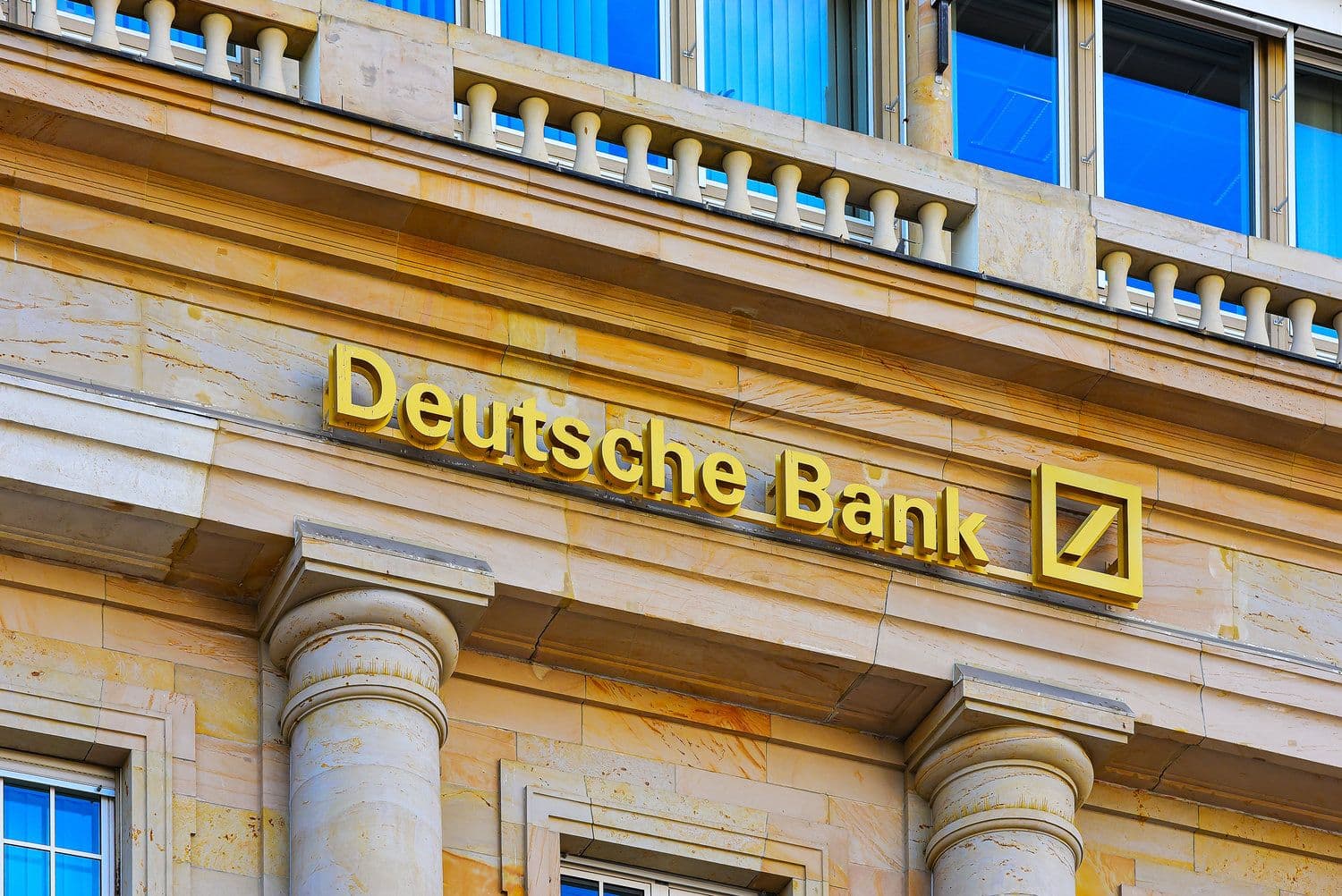Deutsche Bank strategists are warning that the U.S. dollar's long-standing position as the world's reserve currency faces serious threats due to escalating trade tensions and geopolitical shifts, potentially setting the stage for a significant Bitcoin rally.
What to Know:
- Deutsche Bank predicts "megashock" in global markets driven by U.S. tariff policies and political instability
- USD Index has fallen below 100 to nearly 99 in April 2025, representing an 8% decline from 2025 highs
- Analysts suggest investors may increasingly turn to Bitcoin as a "non-sovereign store of value" amid dollar weakness
Dollar Decline Signals Potential Shift in Global Financial System
George Saravelos, head of FX Research at Deutsche Bank, has issued a stark warning about the dollar's future in a recent note to clients. Saravelos, alongside strategist Tim Baker, cited a series of structural changes in U.S. financial and economic policy that could trigger what they describe as a "megashock" in global markets.
"The preconditions are now in place for the beginning of a major dollar downtrend," Saravelos and Baker stated, pointing to the growing reliance on tariffs in U.S. trade relationships and increasing political instability.
The analysts express particular concern that elevated U.S. tariffs will increase business costs, especially for companies dependent on imported goods or raw materials.
These increased costs would likely be passed on to consumers, creating an inflationary environment already exacerbated by what they characterize as increasingly confrontational trade policies from the current administration.
This inflationary pressure comes at a particularly challenging time, as U.S. Treasury Secretary Scott Bessent recently indicated that a comprehensive trade agreement with China could take years to materialize. The prolonged uncertainty is expected to heighten market volatility and potentially slow momentum across various asset classes, including cryptocurrencies.
Adding to these concerns is the political pressure facing the Federal Reserve. With President Trump's public criticism of Fed Chair Jerome Powell, Deutsche Bank suggests the central bank may yield to pressure and implement rate cuts beyond the two reductions already projected for this year.
Bitcoin Positioning as Alternative Safe Haven
The dollar's struggles are already apparent in market data. The USD Index has fallen below 100 to nearly 99 in April 2025, representing an 8% decline from its 2025 highs. Goldman Sachs analysts have gone further, forecasting that the greenback could lose nearly 10% against major currencies including the euro, yen, and pound by year-end.
The deteriorating economic outlook adds additional pressure, with Goldman Sachs now estimating a 45% recession risk for the U.S. economy, up from their previous estimate of 35%. The bank specifically cited tariffs as a factor that will erode citizens' real income, potentially squeezing an already fragile economic recovery.
Jay Jacobs of BlackRock believes these conditions could create what he terms a "megaforce" that reshapes global finance for decades. "Directly related to this geopolitical fragmentation is the rise of Bitcoin as people seek stability amid destabilization and demand alternative assets," Jacobs observed in recent comments.
He further noted that Bitcoin appears to be decoupling from technology stocks, establishing itself as a potential safe haven and digital alternative to gold. This trend could accelerate if the dollar continues its downward trajectory, particularly as investors search for stores of value outside traditional fiat currencies.
The shifts come as market participants closely monitor U.S. monetary policy decisions and their global ramifications. If the Federal Reserve yields to political pressure by cutting rates while inflation remains elevated, analysts suggest this combination of high inflation and low borrowing costs could further drive investors toward alternative assets like Bitcoin.
Closing Thoughts
The potential decline of the U.S. dollar represents a significant shift in the global financial landscape, with far-reaching implications for investors and policymakers alike. As traditional currency relationships evolve, Bitcoin's emergence as a potential safe haven asset signals a new paradigm that could reshape investment strategies in the coming years.



